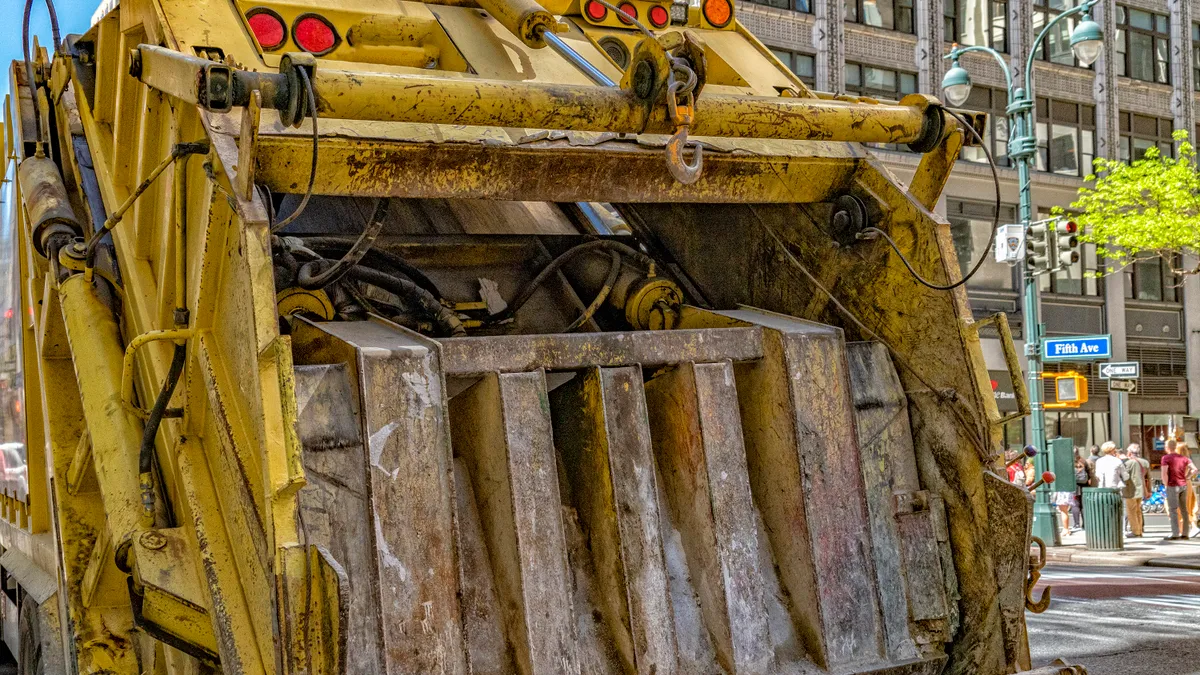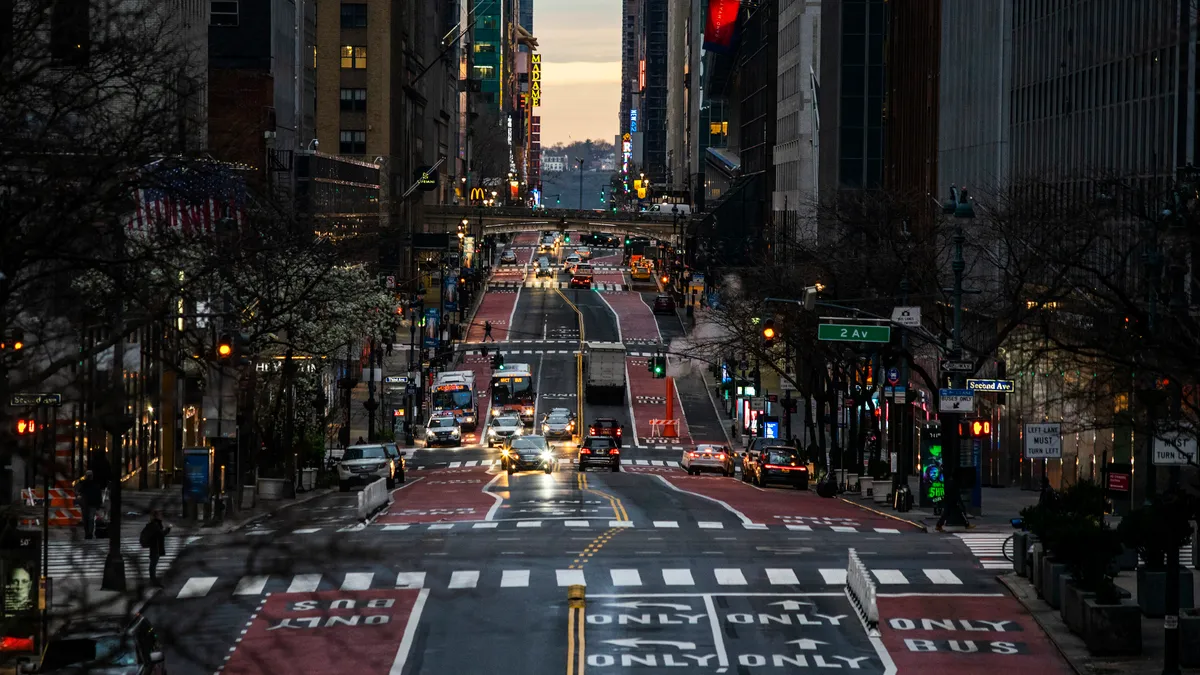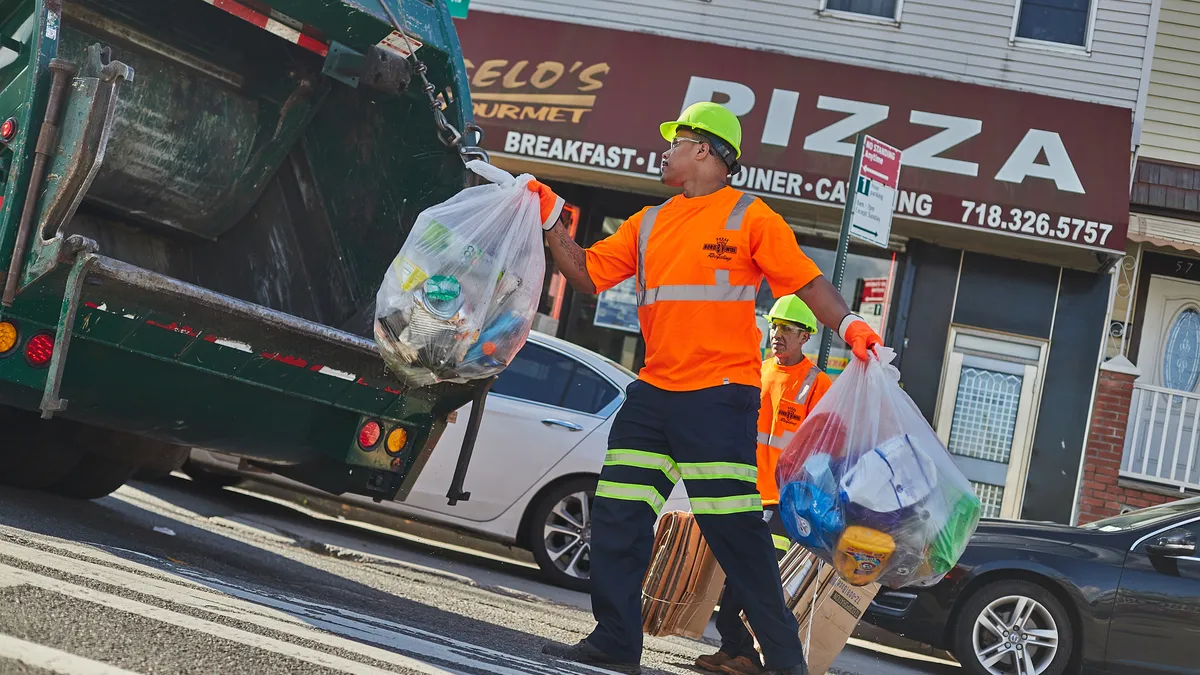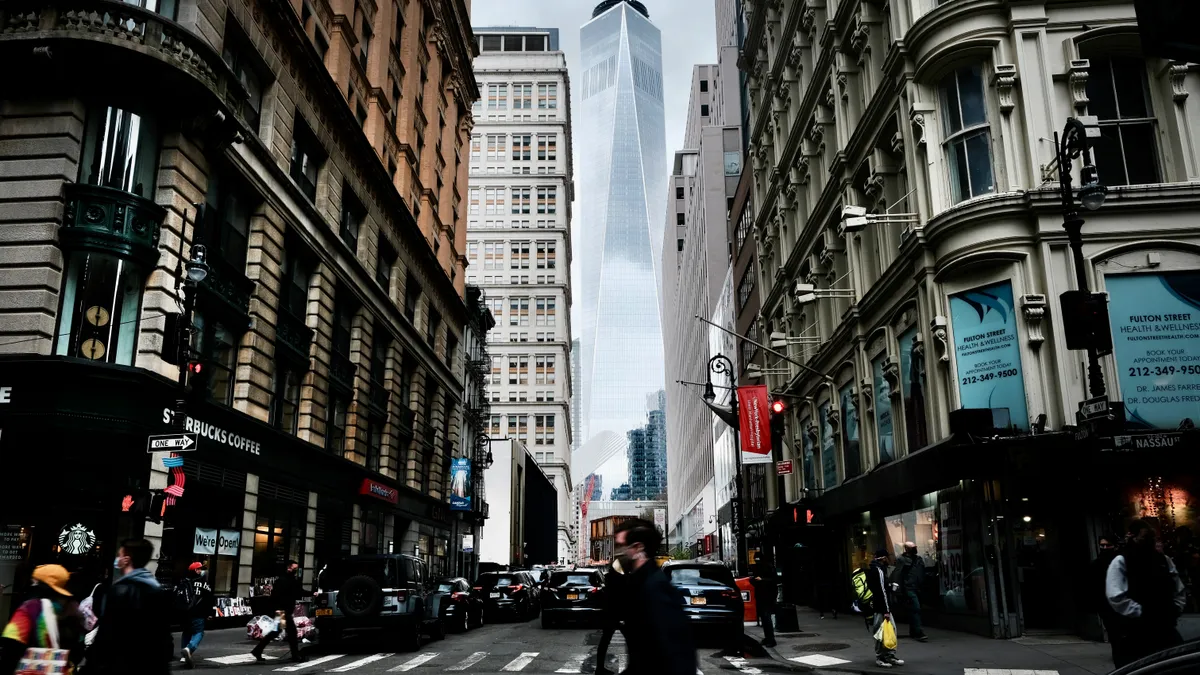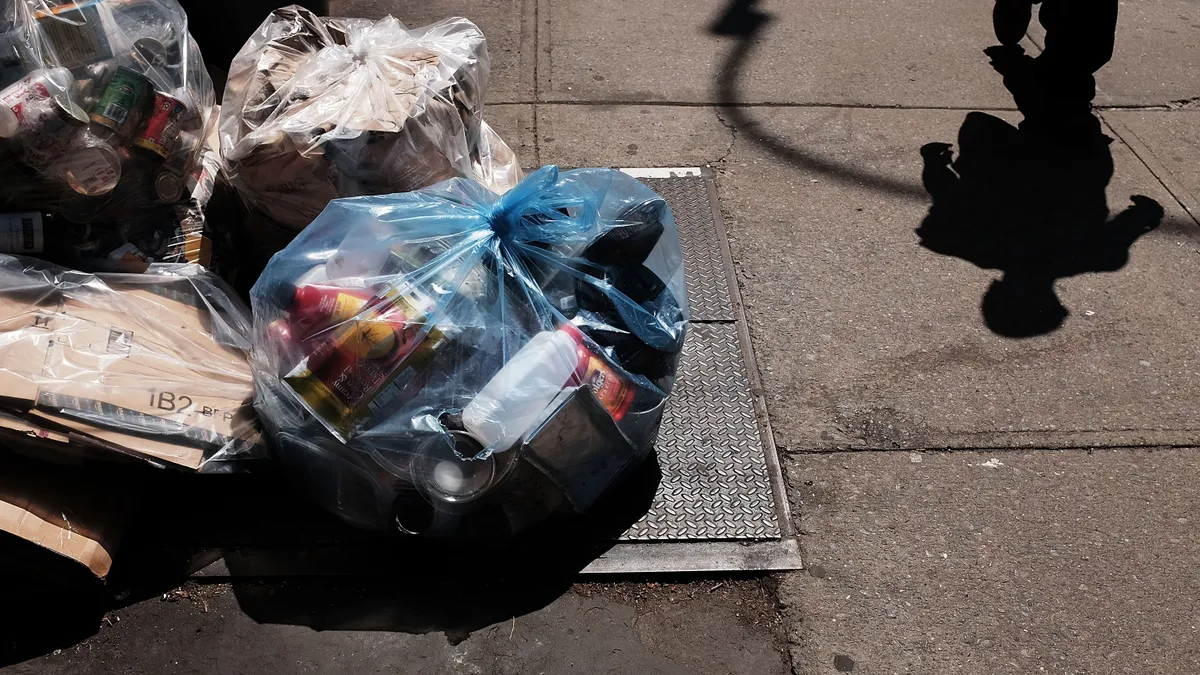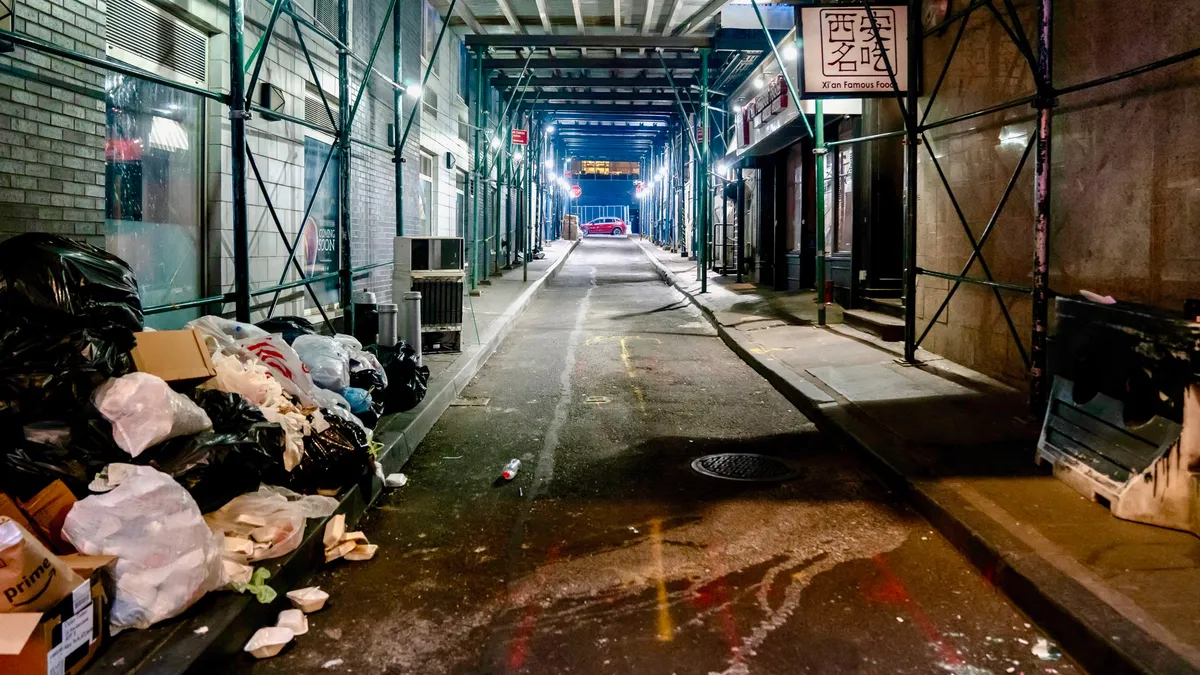As pressure mounts to change New York's commercial waste industry, all eyes are suddenly on a little-known city agency that has been tasked with regulating it for more than 20 years.
Originally formed as the Trade Waste Commission in 1996 — with the goal of rooting out organized crime — what is now called the Business Integrity Commission (BIC) holds a unique role in the U.S. waste industry. No other city has anything else quite like it, often leaving the work of licensing and regulation to existing municipal branches or other state laws.
Making BIC's position doubly unique is the fact that many — including the agency itself — feel it's now time for an evolution into greater safety regulation. From there, opinions abound but agreement is rare.
BIC, in concurrence with the city's law department, asserts that it needs new legislation to have true authority over that area. Labor advocates disagree, often pointing to language in the agency's charter which lists "compliance with safety and health measures" as a sign that BIC already has the power. If that isn't enough already, some argue, then perhaps the agency has outlived its usefulness.
These questions have escalated in recent months, following the revelation from Pro Publica that one Bronx company appears to have covered up a 2017 worker death and conditions remain poor for employees at others as well. The headlines have grown exponentially since then, as action stirs ahead of a major city policy announcement on franchise zones this summer.
Throughout it all, BIC has kept a relatively low profile — urging patience in an ongoing investigation of the company Sanitation Salvage and promising new safety plans beyond the more voluntary initiatives it has undertaken so far. In the meantime, industry groups have backed new legislation to counter franchising by granting BIC more authority and taking other steps to maintain an open market system.
As BIC experiences more attention than it has in years — if not decades — it bears looking at how the mission has evolved around safety and where to go from here. Waste Dive spoke to four former commissioners, as well as current Commissioner Dan Brownell, to find out.
Bad old days to today
Any who feel that New York's commercial waste industry is bad now will readily admit that it was truly corrupt and dangerous in decades past. From the 1950s through the 1990s, a large share of the business was controlled by organized crime groups charging sky-high prices and defending their "property rights" to various stops with seeming impunity.
As described in the 2002 book "Takedown," written by an undercover NYPD detective that led the investigation which felled many of the mob's biggest figures, their control of local collection was "iron-fisted." One 1995 estimate put the local industry's annual value at $1.5 billion and said customers were being overcharged by as much as 40%.
During this time, the industry had been regulated by the Department of Consumer Affairs (DCA), but city officials had largely felt powerless to stop corruption. So when elected officials set to work on reform measures, they chose to make an entirely new entity — the Trade Waste Commission (TWC).
According to those involved at the time, the reason no other city has anything similar to BIC — the closest approximation being in nearby Westchester County — is just how endemic the issue was.
"In New York, and to some degree in New Jersey, it wasn't just organized crime influence. What we had was a full-blown cartel," said Raymond Casey, who served in a number of city leadership positions, including as commissioner of the TWC starting in 2001.
Now a practicing regulatory attorney, Casey has worked in multiple cities and said organized crime elements still remain prevalent and ready to capitalize on lax oversight. Speaking to critiques of BIC's obsolescence, he warned the city would come to regret its absence "in a very significant way."
“I don’t think anyone intended its role to be stagnant. For it to be effective, it has to evolve. But evolving is a lot different than it not being necessary," said Casey.
While health and safety matters were not viewed as a pressing issue at the time compared to cleaning up the industry and also recovering from 9/11, Casey believes that role makes sense for BIC today. Though he agreed with the agency's current position that it still needs new language to do so, warning it would be "catastrophic" if BIC lost a court challenge.
Jose Maldonado, who served as the first commissioner of BIC in its current form — after a 2002 charter revision that combined the TWC with agencies overseeing wholesale markets and shipboard gambling — also said health and safety issues weren't front and center during his tenure. Catching up on a backlog of license applications, working on changes to a collection rate cap and streamlining regulations were instead the issues de jure.
Though he differed from other predecessors slightly in saying that BIC's existing authority does already include "broad and expansive powers" to ensure workers and the public aren't harmed. This would fit into a key piece of existing criteria for license review.
"...In assessing one’s good, character, honesty and integrity, certainly taking into consideration how one operates their business would be appropriate."
Michael Mansfield, who became commissioner in 2007 and is now a senior vice president of investigations at T&M, agreed safety and health were "always part of BIC's mandate," but had a slightly different view of the agency's reach.
“When you have a mandate to be a regulatory agency and law enforcement agency at the same time, which quite frankly is somewhat of a unique hat to have, you have to be very careful how you exercise that authority," he said, noting the power to put companies out of business was "overwhelming" compared to many other industries.
While Mansfield sent teams to regulate idling vehicles outside Bronx transfer stations to protect local air quality, worker safety wasn't a public conversation yet. Instead, the focus was still on things such as rate caps and collection rules.
As for safety regulation under Shari Hyman, appointed commissioner in 2011, she "felt like we were responsible to monitor it" but technically “it wasn't within our mandate as a rule."
Like others, she said the issue really just wasn't as pressing in the public's eye as it has become today. Instead, she was more focused on passing truck emission standards that will take effect by 2020 and looking for other ways to be creative with the agency's authority by working on issues such as illegal grease dumping.
“As an investigative agency, nothing stops you from asking questions," said Hyman, now a vice president at Westfield in charge of managing its World Trade Center properties. "If you use limited resources wisely and understand the jurisdictions of other agencies, there is no reason that you can’t leverage these things to accomplish the best end for the public."
She agreed that this could also be applied to BIC's current pivot into safety measures though, like Casey, warned that doing so without proper legislative backing could result in costly and time-consuming legal challenges.
Growing pains
Commissioner Brownell credits Mayor Bill de Blasio's 2014 "Vision Zero" initiative, launched during both of their first years on the job, as the driving force behind this current moment.
Asked whether safety was on the agenda when he took over the agency, Brownell said that regulating corruption was top of mind, but things are changing within the industry.
"It's definitely evolved," he said, "and of course it's important for BIC to evolve along with it and make those new concerns part of our mission. And obviously improving safety in the last few years has been very important to them. The crashes and other safety problems in the industry have been a real concern."
Yet this gradual evolution isn't happening fast enough for the industry's critics. Brownell has been hinting at hopes of expanding his safety authority for months, but some believe it's a false argument.
"If BIC doesn't have that authority then they shouldn't exist," said Antonio Reynoso, chair of the city council's sanitation committee, who feels its level of action on safety pales in comparison to that of, say, the city's health department or others.
"The industry knows the best agency to give it to is BIC, because they can’t do the work," he said. "The Department of Sanitation or DCA would ruin these guys. They shut down restaurants for having ice boxes open."
However, City Hall has come to the agency's defense when asked about new legislation recently.
“I hope, and I think the City Council is very receptive to this idea that we can really strengthen the hand of the BIC. Give them a lot more tools, a lot more teeth to work with in their regulation of that industry," said Mayor de Blasio during a recent interview on Spectrum News NY1.
Reynoso and zone backers such as the Transform Don't Trash coalition aren't playing along. Conversations with various members indicate remaining skepticism about just how much power the charter already includes. Even those who recognize safety isn't technically within the agency's realm still believe it's already part of the broader spirit of rooting out corruption and don't want to divert any attention away from larger reform efforts.
"They are the agency that looks at the corruption issues," said Maritz Silva-Farrell, executive director of ALIGN. "If BIC is not able to do that, because they're spending time on either trying to work with the industry, or trying to pass legislation, they’re basically wasting their time."
BIC is still pushing ahead with plans to introduce legislation as soon as September, and doesn't view the potential new authority proposed in the zoning counterproposal as a viable solution.
Council Member Robert Cornegy, one of that bill's primary sponsors, could not be reached for comment.
Instead, Brownell intends to stay the course, tune out the critics and protect the agency from any future legal questions.
"I understand how members of the council, especially if they're not attorneys, and maybe some of the advocates whether they're attorneys or not, may not appreciate this. But the law department is very good ... They understand what city agencies can do, especially in light of what state and federal agencies already do."
BIC 2.0
Figuring out how to keep this unique little agency — budgeted for $8.64 million in the coming year with a staff of about 90 — as viable as possible in the current climate won't be easy.
"Any entity has to evolve with the times and I think BIC is struggling with that internally, but I also think they're going in the right direction," said Mansfield.
BIC's role in licensing or regulating a potential zone system will bring further change and merit an even bigger spotlight. Reynoso plans to convene a joint hearing with the council's Oversight and Investigations Committee to examine BIC's handling of the Sanitation Salvage investigation and general performance.
The industry's perspective of course differs on this, with many feeling that Brownell has struck the right balance.
"I think that the majority of carters actually do live in fear of the BIC," said David Biderman, executive director of the Solid Waste Association of North America (SWANA), adding that some have healthy relationships too. "I think that’s something that should be lauded, not something that should be looked upon negatively. You want the regulated community to feel like they can communicate with the regulators."
Maldonado, who now works as a senior counsel for local trade group New Yorkers for Responsible Waste Management, agreed with the need for open dialogue.
"I think it is most appropriate for BIC to be meeting with the industry and to be involved with some of these safety symposiums," he said. "So the industry is aware that this is an issue BIC is paying close attention to."
All of the other former commissioners agreed, though took different approaches. Mansfield formed a trade advisory board, Hyman chose not to continue that but said she maintained an open door policy. Brownell has since reinstated it.
"As a fundamental philosophy of me and this agency at this particular point, it's important for us to have good working relationships with everybody in and around this particular industry ... We see it as very important to have a dialogue with them as part of our regulation," said Brownell. "It doesn't mean we do what they say."
Some will always choose to be skeptical of that, preferring the hard-line approach that the agency was in part founded on. Others see some value in healthy debate, even if it may not always serve their interests. All involved will be watching closely to see if this regulator can truly reinvent itself or run the risk of becoming anachronistic.







